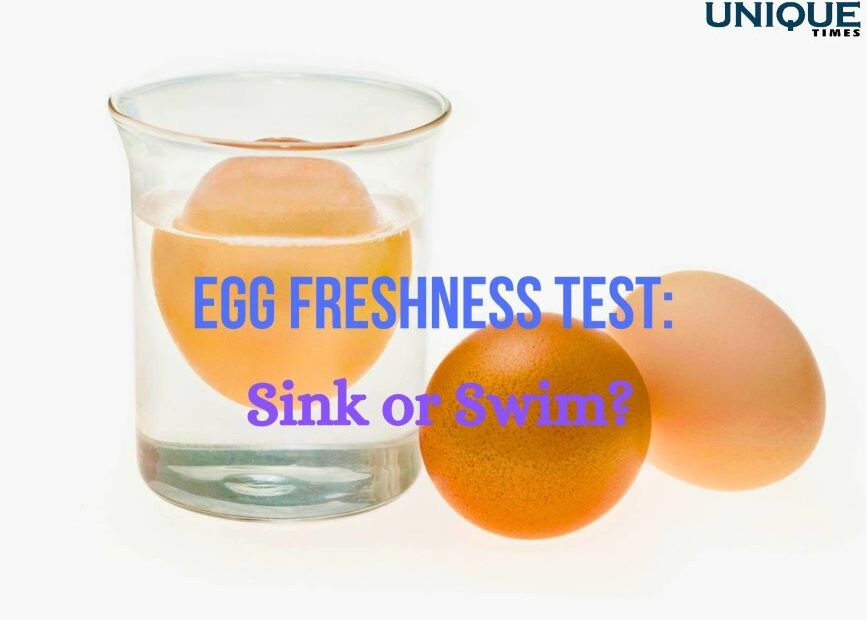Egg Freshness Test: Does a Fresh Egg Sink in Water?

Eggs are a staple in many households, used in a wide range of dishes from omelets to baking. But have you ever wondered how to tell if an egg is fresh or not, especially when you can’t rely on the expiration date? One simple and reliable method is the “egg freshness test,” which involves placing an egg in water. In this blog post, we’ll explore this easy kitchen hack and explain why a fresh egg will sink in water.
The Egg Freshness Test: To perform the egg freshness test, you’ll need a bowl or glass of water and the egg you want to check. Here are the steps:
- Fill a bowl or glass with water.
- Gently place the egg into the water.
Now, let’s interpret the results:
- Fresh Egg (Sinks): If the egg sinks to the bottom and lays flat on its side, it’s a sign that the egg is fresh and has a low air content. Fresh eggs are ideal for recipes that require the egg to hold its shape, such as poached eggs or fried eggs.
- Still Fresh but Aging (Sinks but Stands Upright): If the egg sinks but stands upright at the bottom or tilts slightly, it’s not as fresh as it could be, but it’s still good to eat. Eggs in this state are suitable for most cooking methods, including scrambling and baking.
- Less Fresh (Floats Slightly): If the egg stands on its pointed end at the bottom or floats slightly above the bottom, it’s less fresh. While it’s still safe to eat, it’s better suited for recipes where the egg is well beaten or mixed, such as cake batter.
- Spoiled (Floats to the Top): If the egg floats to the top of the water, it’s a sign that it’s spoiled and should be discarded. Eggs that have gone bad may emit a foul odor, so be sure to give them a sniff as well.
Why Does a Fresh Egg Sink?
The science behind this test lies in the egg’s air cell. As eggs age, the moisture inside the egg evaporates, and the air cell inside the egg expands. A fresh egg has a smaller air cell, making it denser and causing it to sink. Older eggs have larger air cells, which make them less dense, causing them to float.
Conclusion: The egg freshness test is a handy kitchen trick that helps you determine the freshness of eggs without cracking them open. It’s a useful tool for ensuring that your dishes turn out as delicious as possible, as fresher eggs often provide better results in cooking and baking. So, the next time you’re in doubt about an egg’s freshness, give this simple water test a try, and you’ll be well on your way to culinary success.
Picture Courtesy: Google/images are subject to copyright








